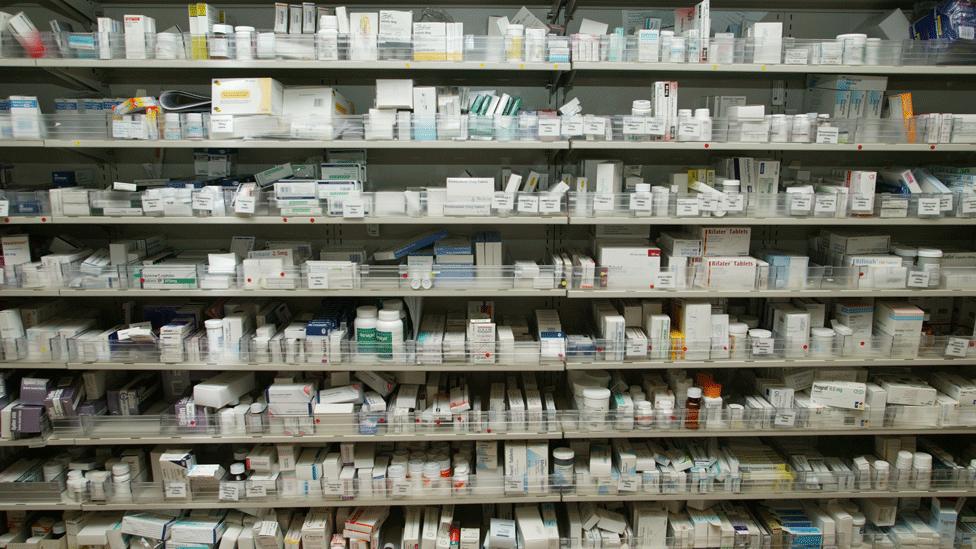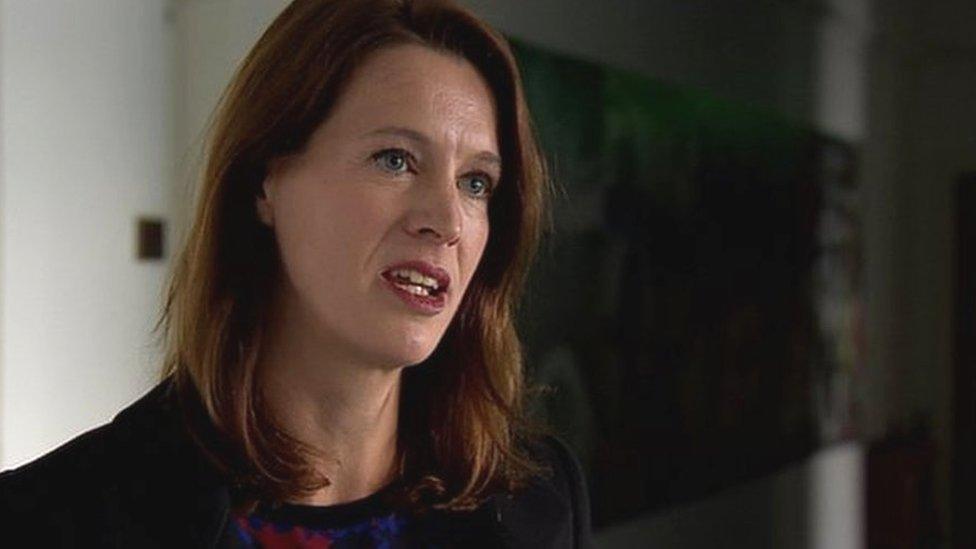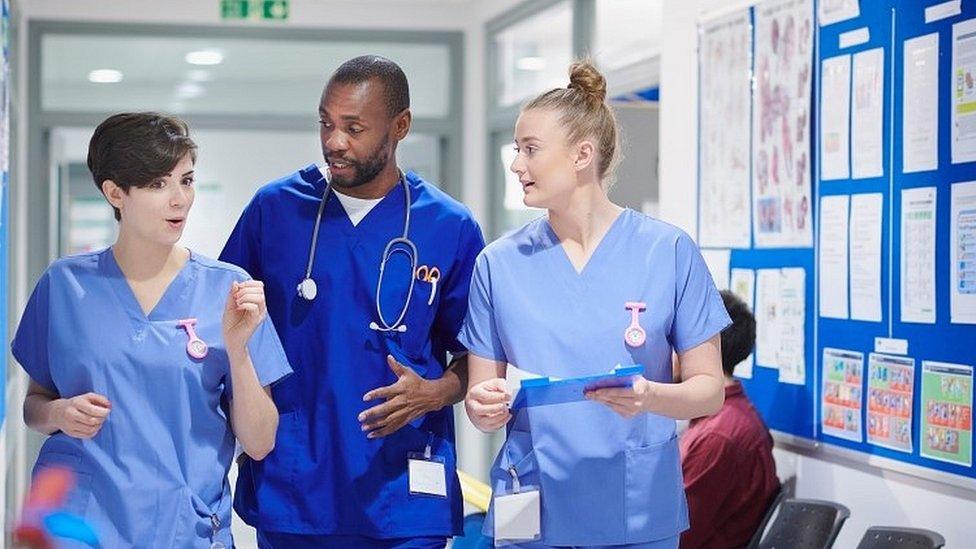NHS Scotland works up 'detailed' no-deal Brexit plan
- Published
- comments

People in the medical profession have expressed concern about medicine availability in the event of a no-deal Brexit
Scotland's NHS has drawn up "detailed plans" to ensure enough medicine and equipment in the event of a no-deal Brexit, the chief medical officer says.
Dr Catherine Calderwood was speaking as NHS managers in England warned of a lack of planning over the impact of leaving the EU without a deal.
She said medical supplies that might be "problematic to access" after Brexit had been identified.
Many drugs and health equipment in the UK are manufactured in Europe,
It emerged on Tuesday that the group representing hospitals and ambulance services in England has warned of a lack of "contingency planning" to deal with the impact of a no-deal Brexit on the health service.
In a leaked email to NHS England boss Simon Stevens, NHS Providers says leaving the EU without agreement would immediately be a real risk to services and warns that it could make it harder to stop the spread of diseases.
The Department of Health said it was confident of reaching a Brexit deal that benefits the NHS but was preparing for "the unlikely event of no-deal", to prevent disruption to patients.

Dr Catherine Calderwood said supplies that could be "problematic" to access had been identified
Dr Calderwood was asked about the situation in Scotland during an interview with BBC Radio Scotland's Good Morning Scotland programme.
She said the Scottish health service had been "working very closely with our colleagues in the Department of Health in England".
Dr Calderwood added: "We have some very detailed plans, a report of what might be problematic to access, and we will be working again very closely with the Department of Health to ensure that there are enough medicines for us in Scotland."
She said the plans included ensuring that hospital equipment and vital medicines such as insulin continued to be available, even in the event of a no-deal Brexit.
When asked if this meant there were plans to "stockpile" medicine and equipment ahead of Brexit, she replied: "The plans that we have discussed involve ensuring that there is a supply of medicines.
"That will mean having those available within the UK, and particularly us in Scotland having our own supplies.
"So if there is a problem with ferry and air freight and the border we already have the medication, we already have the intravenous fluids and the equipment already in the country for the use of our patients in the NHS in Scotland."
When is the UK due to leave EU?
The UK is due to leave the EU on 29 March 2019 and the two sides are currently negotiating the terms of its exit and its future relations in a whole range of issues.
Both sides insist they want to avoid a "no deal" Brexit, where the UK leaves without a formal agreement in place, but key differences remain as they enter the critical phase of talks.
The UK is sticking by its insistence that "no deal is better than a bad deal", with government ministers dismissing fears of shortages and queues of lorries at ports if the EU and UK can not reach a deal.
- Published21 August 2018
